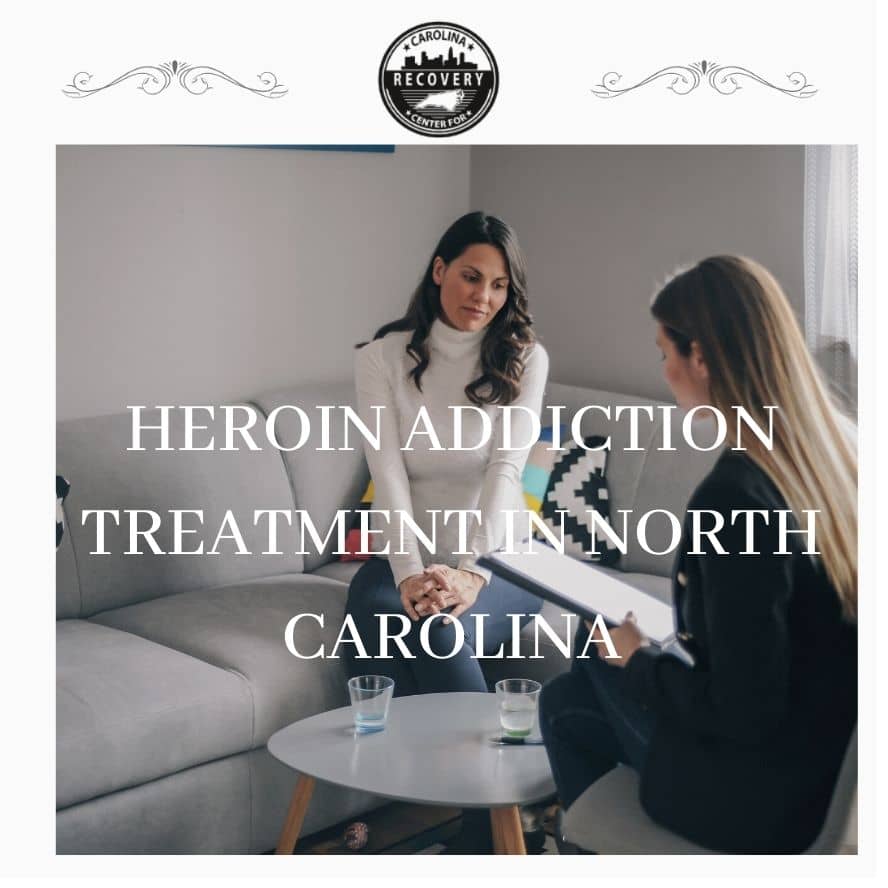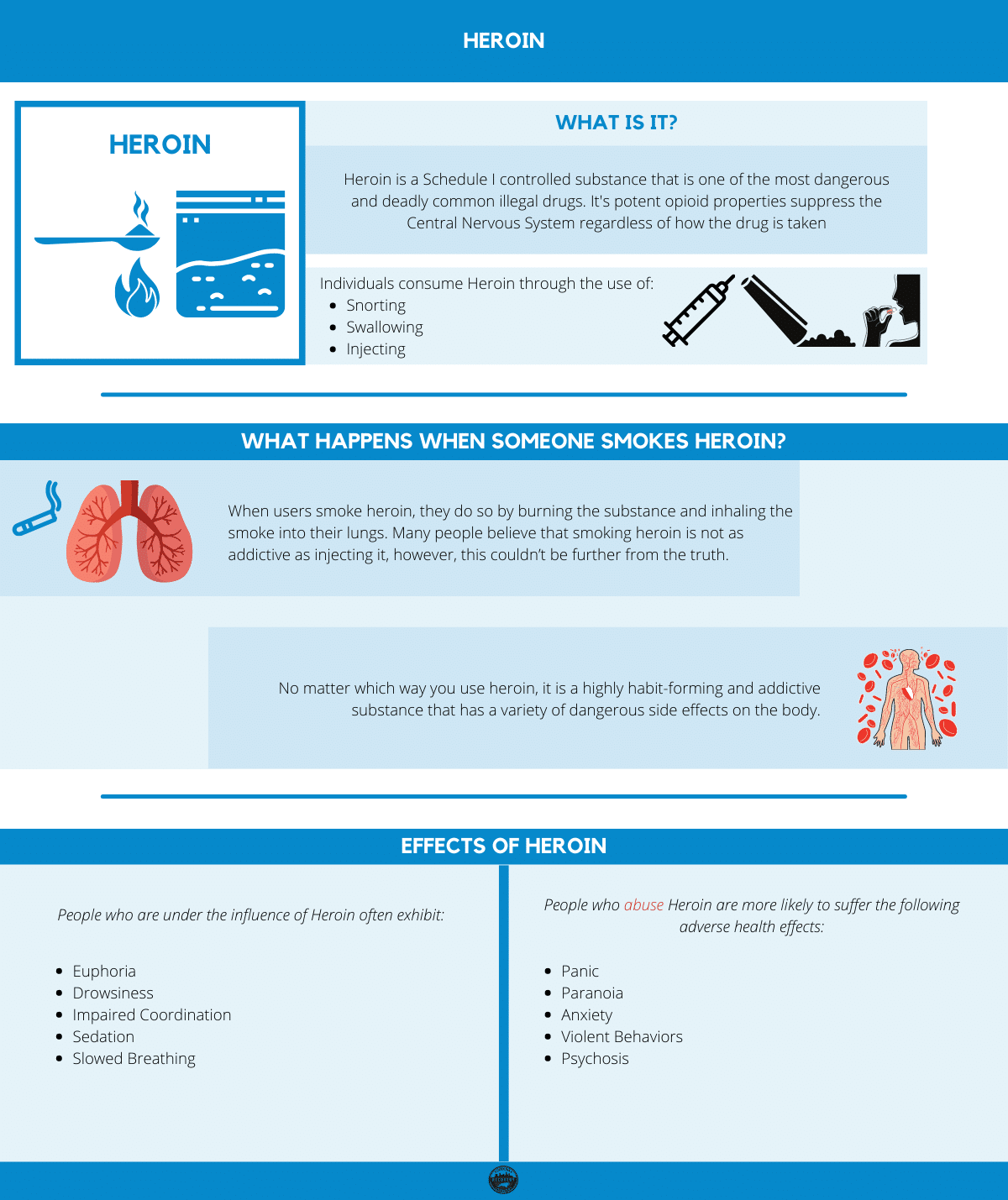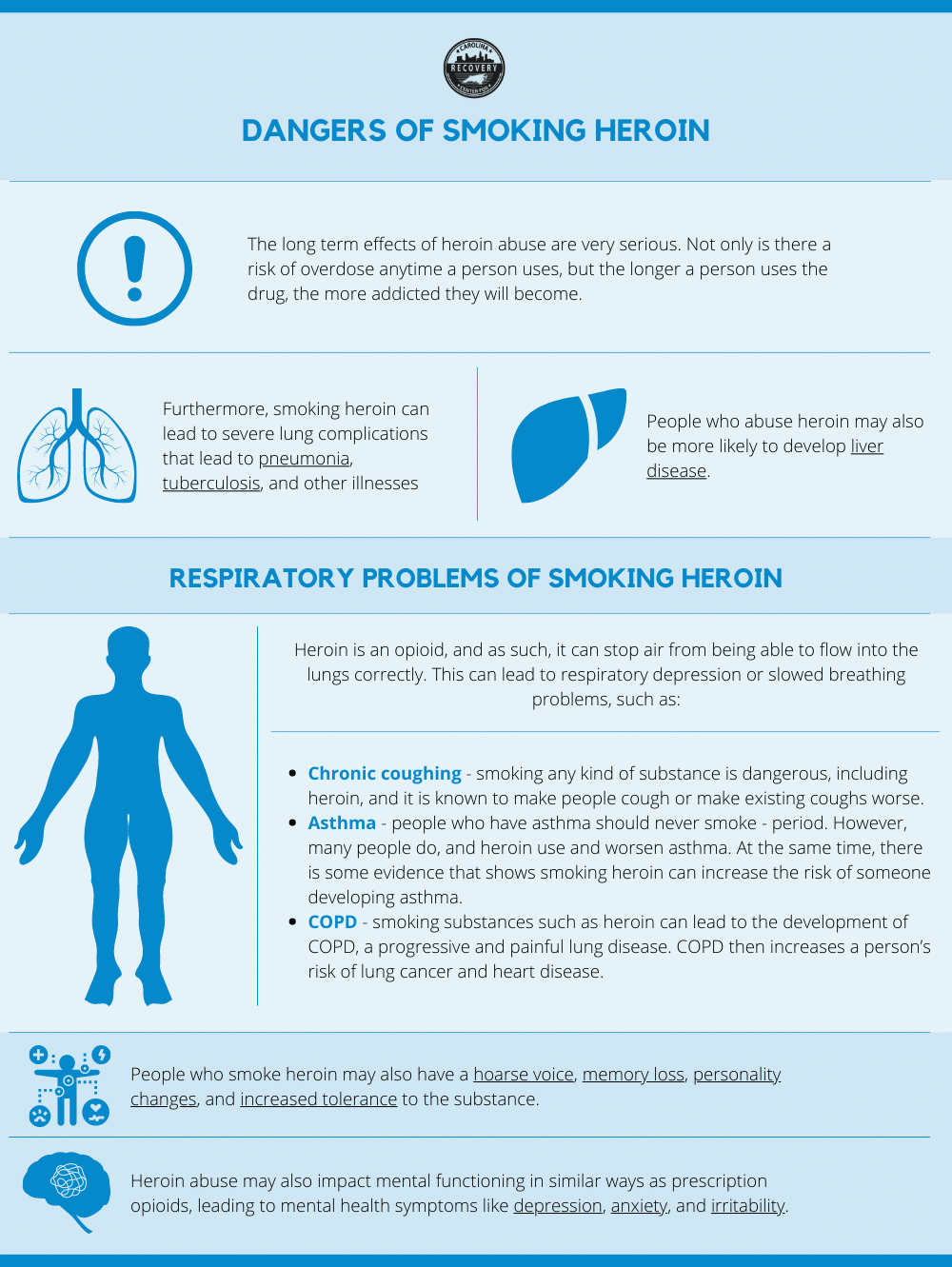Heroin Addiction Treatment in North Carolina

Medically Verified: 2/1/24
Medical Reviewer
Chief Editor

All of the information on this page has been reviewed and verified by a certified addiction professional.
Heroin is an extremely addictive opioid drug that can cause individuals to become dependent after only one or two uses. According to the National Institute on Drugs, “Among people aged 12 or older in 2020, 0.3% (or about 902,000 people) reported using heroin in the past 12 months.”[1]
While heroin addiction may not be as common as alcoholism, suffering from this disorder can lead to an array of social, emotional, financial, and health issues. Many people who abuse this substance suffer from life-threatening overdoses, homelessness, and high rates of incarceration. Unfortunately, due to the symptoms of withdrawal, many people struggling with heroin addiction fail to get sober on their own.
A heroin addiction treatment center in North Carolina can help individuals detox safely, address the root cause of their addiction, and learn to stay sober.


When is it Time to Find Heroin Addiction Treatment?
Heroin is a super potent drug that quickly alters the brain chemistry of the people who use it. To explain, as someone begins to use heroin, their brain begins to associate the substance with pleasure and reward. Soon after their use of the drug begins, this turns into psychological and physiological dependency, which means their body needs the drug to function.
Signs that it’s time to seek treatment include:
- Mental obsession with heroin use
- Weight loss
- Paranoia
- Depression
- Anxiety
- Hostility and mood swings
- Fatigue or body pain
- Chronic constipation
- Unexplained bruises or scabs on the body
- Euphoria is followed by great feelings of despair
- Nodding out during conversations or at inappropriate times
- Withdrawal symptoms when heroin is not being used
- Getting into legal or social trouble due to heroin use
- Losing one’s job or being unable to complete daily responsibilities
What to Expect During a Heroin Addiction Treatment Program in North Carolina
When someone is addicted to heroin, they will have a hard time quitting the drug on their own. This is because they will experience symptoms of withdrawal when they suddenly stop using the drug. The symptoms of heroin withdrawal can be extremely uncomfortable and even painful, often causing individuals to relapse without proper medical treatment.
If a person attempts to use the amount of heroin they used before taking a brief break, they are at extreme risk of experiencing a fatal overdose. As a result, it’s vital to get help from a professional addiction treatment center rather than attempting to quit heroin on their own.
Medical Detox
When someone is at a medical detox center, their body will be completely rid of all substances, but they will experience the symptoms of heroin withdrawal. Withdrawal symptoms can be managed through medications and holistic treatments like yoga, massage, or meditation.
The symptoms of heroin withdrawal include:[2]
- Cravings for heroin
- Depressed mood
- Stomach pains
- Nausea and vomiting
- Muscle aches
- Body pain and weakness
- Runny nose
- Nausea and vomiting
- Extreme sweating
- Chills
- Runny nose
- Heightened blood pressure
- Cardiovascular problems
- Respiratory distress
- Insomnia
- Seizures
- Stroke
- Coma
Medical detox programs use FDA-approved medications that lessen symptoms and prevent cravings. These medications can also help prevent withdrawal complications and keep patients safe and comfortable throughout the entire process.
Behavioral Therapy
After a client is medically detoxed and their body is completely rid of all substances, they can begin to focus on the root causes of their heroin abuse and addiction. Professional therapists and psychologists will use behavioral therapy techniques to help patients address the root cause of their condition. Behavioral therapy can also help patients learn how to cope with stressors and use positive coping mechanisms to overcome triggers or distressing situations.
Examples of types of therapy used in heroin addiction treatment include:[3]
- Cognitive behavioral therapy (CBT)
- Contingency management (CM)
- Motivational interviewing (MI)
- Community reinforcement plus vouchers
- The matrix model
- 12-step facilitation therapy
- Family behavior therapy
- Dialectical behavior therapy (DBT)
Group Therapy and Support
Clients will also participate in group counseling sessions. These sessions provide patients with a sense of belonging, support from their peers, and the ability to learn about addiction from varying viewpoints. Being in a counseling group allows people to interact with others that are going through similar issues, showing them that they are not alone.
While group counseling can be scary at first, it provides people with:
- The feeling of not being alone
- Being connected with others
- Improved communication skills
- A broader range of feedback
- The ability to practice new skills learned during individual therapy
- Better understanding from the counselor as they can see you interact with others
Relapse Prevention Planning
Before completing a heroin addiction treatment program in North Carolina, patients will create a relapse prevention plan. Leaving an addiction treatment center can be overwhelming, as the person begins to experience triggers that were shielded from them during treatment. However, relapse prevention planning provides people with the tools they need to maintain their newfound sobriety outside of their facility.
Relapse prevention planning includes:
- Continued therapy
- Continued medication management if needed
- List of triggers and coping skills to use
- List of sober supports to call in times of need
- Alumni support groups to attend
- Referrals to additional programs like outpatient heroin rehab or sober living housing
- Referrals to addiction recovery support groups like AA or NA
Finding Help for Heroin Abuse and Addiction Today
If you or a loved one suffer from heroin addiction, it’s time to consider seeking professional help. Heroin addiction can lead to an array of health complications, including fatal overdoses. The only way to prevent this from happening is to get sober and learn how to maintain long-term sobriety.
At Carolina Recovery Center, we emphasize the importance of learning coping mechanisms and understanding how to overcome triggers to prevent a relapse. This provides our patients with the best chances at long-term sobriety possible. Contact us today for more information on our heroin addiction treatment center in North Carolina.
References:

